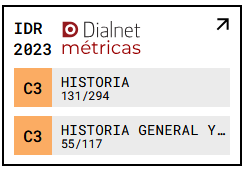Give birth the present: teach keeping the mother in mind
DOI:
https://doi.org/10.18172/brocar.1603Keywords:
Feminine authority, sexual difference, listen and trust, tell the truth, María Zambrano, María-Milagros Rivera GarretasAbstract
The new civilization, born of the feminist revolution of the twentieth century has brought large gains to the world: the end of patriarchy, the symbolic order of the mother, the sexual difference, female authority, the politics of women... and has left discovered some inconsistencies, we live in formal education but we dare to open the conflict such as: teaching and education regardless of that knowledge, like life, is sexed, keep repeating about male knowledge with pretensions to be universal; teach methods inherited from a hierarchical school whose center is the object of knowledge rather than the educational relationship, not taking into account the female origin of education for all and we’ve all learned the language. It is urgent that the teaching of history is structured not in wars to give way to a history of feelings, relationships, memories, what has happened and it happens to people.Downloads
References
AA. VV., Treinta retratos de maestras. De la segunda república hasta nuestros días. Madrid, Cuadernos de Pedagogía / CissPraxis, 2005.
AA. VV., La diferencia de ser mujer. Investigación y enseñanza de la historia. Barcelona, Duoda, Centro de Investigación de Mujeres, 2005, en CD-ROM.
AA.VV., Una revolución inesperada. Simbolismos y sentido del trabajo de las mujeres, trad. de Carolina Ballester Meseguer. Madrid, Narcea, 2001.
ARENDT, Hannah, Entre el presente y el futuro. Ocho ejercicios sobre la reflexión política. Barcelona, Península, 1996.
ARNAUS, Remei y PIUSSI, Anna Maria (coords.), La universidad fértil. Mujeres y hombres, una apuesta política. Barcelona, Octaedro, 2010.
CABA, Angels, CASANOVA NADAL, Mercedes y EDO BENAIGUES, María Joseph, El siglo XX en primera persona. Barcelona, Octaedro, 2001.
CIGARINI, Lia, “Introducción”, en AA.VV. Una revolución inesperada. Simbolismo y sentido del trabajo de las mujeres, trad. de Carolina Ballester Meseguer. Madrid, Narcea, 2001.
HADEWIJCH, Poesie visioni lettere, sel. y trad. de Romana Guarnieri. Génova, Marietti, 2000, 113 (Lett. 7).
MAÑERU MÉNDEZ, Ana, "La diferencia sexual en la educación", en Nieves Blanco (coord.), Educar en femenino y en masculino. Madrid, Universidad Internacional de Andalucía – Akal, 2001.
MAÑERU MÉNDEZ, Ana, “Recetas que no fórmulas”, en SOFÍAS, Escuela y educación ¿hacia dónde va la libertad. Madrid, Horas y horas, 2002.
PIUSSI, Anna Maria y MAÑERU MÉNDEZ, Ana (coords.), Educación, nombre común femenino. Barcelona, Octaedro, 2006.
MURARO, Luisa, "De qué lágrimas lloradas y de qué sangre" y de qué esperma, en Guerras que yo he visto. Saberes de mujeres en la guerra, trad. María Echaniz. Madrid, Horas y horas, 2001.
MURARO, Luisa, La verdad de las mujeres, trad. María-Milagros Rivera Garretas, en “Duoda, Estudios de la diferencia sexual”, nº 38, 2010.
MURARO, Luisa, Enseñar la libertad, en “Duoda, Revista de Estudios Feministas”, trad. de María-Milagros Rivera Garretas, nº 67, 2004.
MURARO, Luisa, Hacer política, escribir historia. (Notas de trabajo), trad. de María-Milagros Rivera Garretas, en “Duoda, Papers de traball”, nº 2, 1991.
QUEROL, María Ángeles, De la Prehistoria a la Edad Media, Volumen I, en Historia de las mujeres en España y América Latina, Madrid, Cátedra, 2005.
RIVERA GARRETAS, María-Milagros, La diferencia sexual en la historia, Valencia, Publicacions de la Universitat de València, 2005.
RIVERA GARRETAS, María-Milagros, Mujeres en relación. Feminismo 1970-2000. Barcelona, Icaria, 2001.
RIVERA GARRETAS, María-Milagros (coord.), Las relaciones en la Europa medieval. Valencia, Tirant lo Blanc, 2006.
ZAMBRANO, María, Filosofía y educación. Manuscritos, ed. Ángel Casado y Juana Sánchez-Gey. Málaga, Agora, 2007.
ZAMBRANO, María, L'art de les mediacions (Textos pedagògics), ed. Jorge Larrosa i Sebastián Fenoy. Barcelona, Publicacions de la Universitat de Barcelona, 2002.
ZAMBRANO, María, Hacia un saber sobre el alma. Madrid, Alianza Editorial, 2000.
ZAMBRANO, María, “El pleito feminista: seis cartas al poeta Luis Álvarez-Piñer (1935-1936)”, a cargo de Maite Alvz-Piñer Méndez y María-Milagros Rivera Garretas, en Duoda, Revista de Estudios Feministas, nº 23 (2002).
ZAMBRANO, María, Persona y democracia. La historia sacrificial. Barcelona, Anthropos, 1998.
Downloads
Published
How to Cite
Issue
Section
License
The authors retain copyright of articles and authorize CIF the first publication. They are free to share and redistribute the article without obtaining permission from the publisher as long as they give appropriate credit to the editor and the journal.
Self-archiving is allowed too. In fact, it is recommendable to deposit a PDF version of the paper in academic and/or institutional repositories.
It is recommended to include the DOI number.
This journal is licensed under a Creative Commons Attribution 4.0 International License











